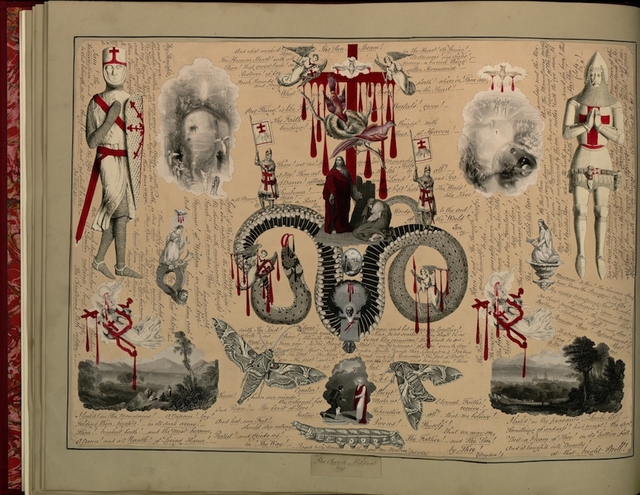
Weekly Reading: Blood Books, Impostors, and Blake
When evening has come, I return to my home and I go into my study. At the threshold, I take off my clothes of the day, which are covered in mud and mire, and I put on regal and courtly garments; and decently reclothed, I enter into the ancient courts of ancient men, where, received by them kindly, I feed on the food that alone is mine and that I was born for. There I am not ashamed to speak to them, to ask them the reasons for their actions; and they, in their humanity, answer me. For four hours I feel no boredom, I dismiss every affliction, I no longer fear poverty, nor do I tremble at the thought of death. I become completely part of them. —Nicolo Machiavelli, 1513
Machiavelli absolutely loved to read. In 1513, he wrote the above letter to his friend Francesco, where he praised reading as a way of transcending boredom, loneliness, and even death. Today, we can read Machiavelli and feel him speaking to us in the same way that he spoke with the ancients: not as remote authorities, but as friends and fellow travellers. David Foster Wallace had a similar opinion of why reading mattered. For Wallace, there was something “nourishing” and “redemptive” about the act of reading. In identifying with an author or a character, he believed, “we become less alone inside.”
We at The Appendix also believe in the power of the written word to bridge gaps, not only between people living today, but between the past and the present. This is the first installment of a new Appendix feature, Weekly Reading, that will combine links to contemporary writing we enjoyed from the past week alongside extracts from authors who might be long dead.
Like Machiavelli, we hope you’re received by them kindly.
- Lou Reed, one of the greatest songwriters of the modern era, passed away. In 1987 he told Rolling Stone that “if you thought of all of it as a book then you have the Great American Novel, every record as a chapter.” We also found his high school yearbook entry.
- At the Slate Vault, Rebecca Onion explored one of our favorite pieces of book art, the Victorian “Blood Book” owned by the Harry Ransom Center.

A page from the “Blood Book,” a macabre betrothal present from a father to his daughter in 1854. HRC
- Atlas Obscura collected their thirty-one blog posts about spooky sites worldwide for Halloween.
- The New Yorker picked our recent article on the impostor George Psalmanazar as its weekend reading.
- Scratch, an intriguing new online magazine about the intersection between writing and money, conducted a wide-ranging roundtable interview with editors at Slate, The Atlantic and The Toast that covered everything from how editors pick articles to the proper pronunciation of GIF.
- We found a 1734 recipe for turkey that includes 15 oysters, nutmeg, and a ton of butter.
- UT Austin PhD candidate Bob Whitaker was interviewed by NPR’s On the Media about his Appendix article “Proto-Spam.”
- The Toast brought us texts from William Blake.
- Public Domain Review and New Inquiry dug up some great eighteenth century witch lore (“they make him kiss their bums”).
- At Not Even Past, a historian reads Machiavelli.
For more links to good writing and interesting discoveries, follow us on Twitter, Tumblr, and Facebook.

